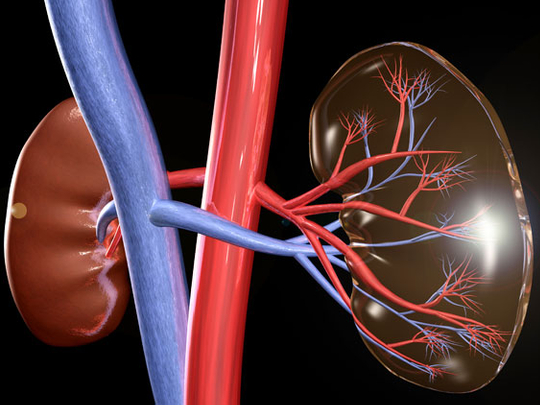
Dubai: An online advertisement selling kidneys has raised legal issues and caused concern among nephrologists in the UAE.
According to the World Health Organisation (WHO), shortage of organs is a universal problem, and the international organ trade has been recognised as a significant health policy issue in the international community.
The advertisement on the online classifieds website stated: ‘Dear kidney patient, if ur looking urgent b+ kidney from donors pls contact [number]’.
In the UAE, the Federal Law No (15) of 1993 regulates the transfer and transplant of human organs, and Article No (7) prevents and prohibits sale of organs.
According to Advocate Mohammad Ebrahim Al Shaiba, Al Shaiba Advocates and Legal Consultants, Dubai, the sale of human organs is a crime, and it is against the law to sell or buy organs by any means or receive a tangible return.
He told Gulf News, “Any advertisement for sale of organs is against the law. Trafficking of human organs by any means is prohibited. One could go ahead with criminal procedures against the website and the person who placed the ad [selling kidneys].”
To access the potential dangers of such advertisements in the medical context, Gulf News spoke to a few nephrologists.
Dr. Sameh El Sayed, Nephrologist at Al Zahara Hospital, Sharjah, said, “The problem with such ads is that these can open the gates for organ trade, especially because renal failure incidence is on the rise, fuelling demand for kidney transplantation. Diabetes is the leading cause of renal failure and the UAE leads the prevalence of diabetes worldwide.”
An advertisement to find a kidney donor breaks the confidentiality between the donor and receiver of the transplanted kidney, said Viorica Khalili, Nephrologist at American Hospital Dubai. “It is best for the patients in need of kidney transplantation to discuss with his or her nephrologist about options available and guidance. “
Dr. Harith M. Mohammed Saeed, Consultant Nephrologist at Al Qassimi Hospital in Sharjah cautioned against such advertisements. He said, “Donors can be close relatives who have to undergo medical, social and psychological assessments.”
Elaborating on the current demand for kidney transplantation, Dr Saeed said that there are more than 1,500 patients on dialysis programmes in the UAE and the number is increasing every year. It is estimated that there will be about 135 new patients per million (population). “This places an enormous requirement on renal transplant programmes,” he said.
Dr. Paulose Thomas, Professor of Nephrology, and Nephrologist at Belhoul Speciality Hospital, Dubai, said that newspapers and online websites shouldn’t accept such advertisements. “Further the public should be told that buying and selling an organ is a criminal offence,” he said.
A spokesperson from the online classified website told Gulf News, “The ad has been removed and that user’s account has been deactivated. It is an unfortunate situation; these types of ads are clearly prohibited on the site.”












